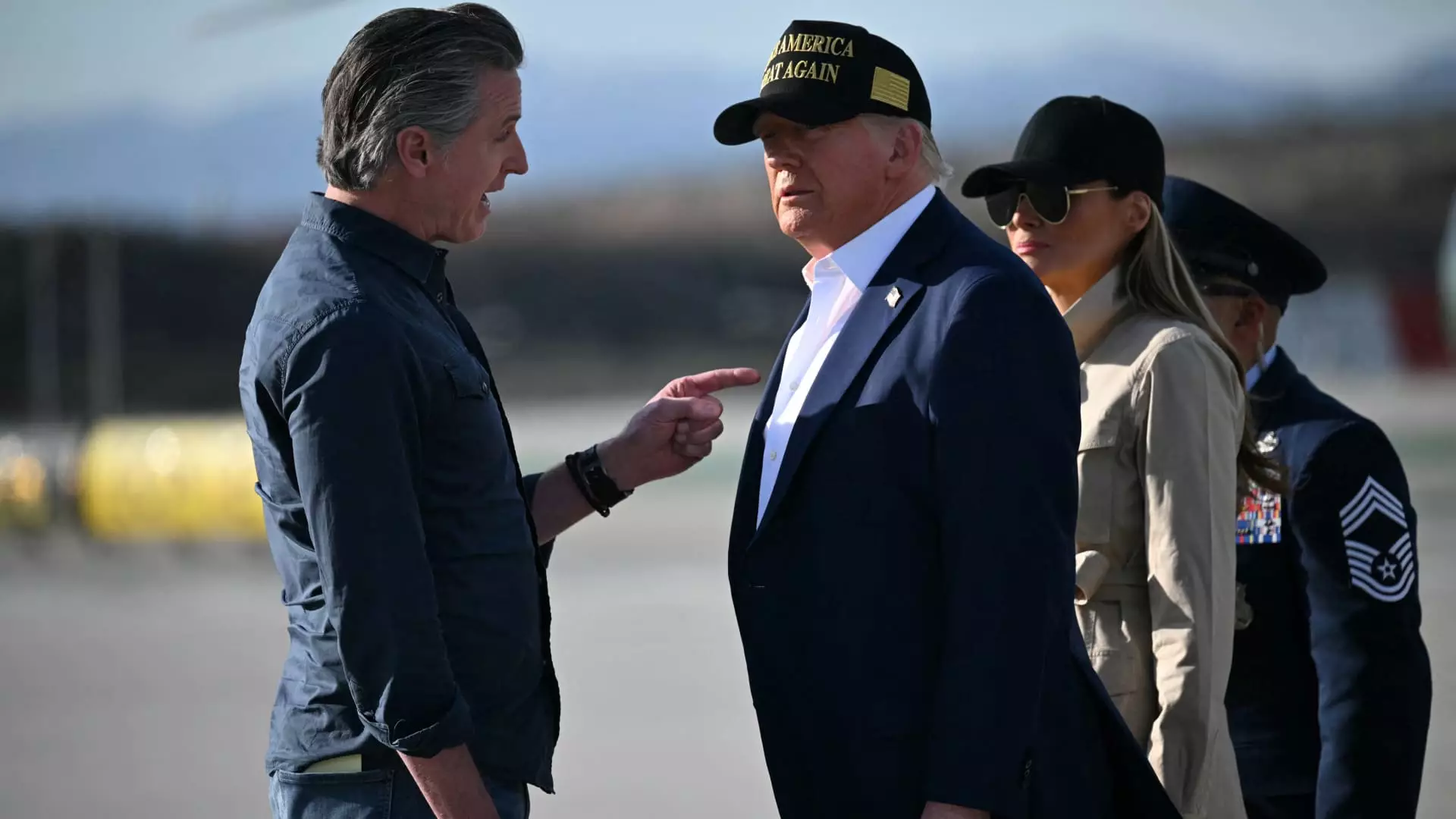The recent post from former President Donald Trump strikes at the intersection of sports, gender identity, and federal politics, leaving many to wonder about the lengths to which a leader might go to impose an ideological agenda. Trump’s declaration to potentially yank “large scale federal funding” from California if it does not adhere to his executive order banning transgender athletes from competing in women’s sports is a stark reminder of how power dynamics play out in the American political landscape. This discourse is not merely a debate over sports; it is emblematic of a societal conflict on gender identity and inclusion that is rapidly evolving but remains deeply polarizing.
Trump’s specific grievance against a trans athlete competing in women’s sports hints at more than mere concern for competitive fairness; it reveals an underlying strategy to vilify a vulnerable population for political gain. By calling the athlete “practically unbeatable,” Trump’s rhetoric reduces a complex human experience to a simplistic caricature, playing into tropes that serve to further marginalize transgender individuals. This framing subtly reinforces existing biases while diverting attention from the real issues at hand, namely the rights of individuals to compete and thrive.
Federal Funding: The Leverage of Power
The threat of withholding federal funds is a potent weapon in Trump’s arsenal, particularly given California’s reliance on federal financing. With over one-third of its budget derived from federal sources, the stakes of this confrontation are staggering. Trump’s tactics can be seen as an attempt to coerce state compliance through economic pressure, reminiscent of tactics used in other contentious policy arenas, such as immigration. It’s alarming that a political leader would wield fiscal support as a means to enforce ideological adherence.
This situation further complicates the discourse surrounding trans rights in sports, which advocates argue ought to prioritize inclusion over exclusion. In stark contrast, Trump’s approach seems to rest on a zero-sum game—wherein one group’s gain in inclusion results in the other’s loss in competition. This mentality promotes division rather than understanding and threatens to undermine the very tenets of liberty and equity that America purports to uphold.
California’s Response: A Model of Compromise
The California Interscholastic Federation’s recent action to create a “pilot entry process” reflects a progressive stance to tackle this thorny issue without succumbing to the pressures of a politically charged environment. This policy seems to suggest that compromise is indeed possible, even in a landscape rife with contentious disagreements. It shows maturity in governance, prioritizing inclusivity while addressing concerns of fairness in competition.
Governor Gavin Newsom’s statement on the new policy implies that even amidst staunch opposition, dialogue and respect for dignity can prevail. By recognizing the complexities of this issue and seeking a balance, California sets a precedent for how to navigate contentious social issues within the public workforce. However, it is also a reminder of the precarious balance between following the law, respecting rights, and managing community sentiment.
The Bigger Picture: Gender Identity and Society
At a deeper level, the conflict Obliquely raises questions about our society’s evolving understanding of gender. The insistence on casting transgender participation in sports as a threat to “fairness” requires a closer examination of notions of equity and competition. Historically, sports have been a transformative arena in which social changes unfold. Banning transgender individuals from competing may signal a retrograde step that fails to recognize the nuanced realities faced by millions.
Moreover, downplaying the concerns raised by the community, as Governor Newsom has inadvertently done by framing the debate as exaggerated, risks alienating those grappling with their identity and seeking validation. There’s a significant disservice in sidelining their narratives, as this debate does not solely concern competition; it involves addressing fundamental human rights.
In a political landscape saturated with division, the conversation around transgender athletes contemplates larger questions of dignity, inclusion, and respect. As battles over identity play out in public spheres, the potential for reform lies in the willingness to engage thoughtfully with complexity rather than resorting to easy, oversimplified narratives.

